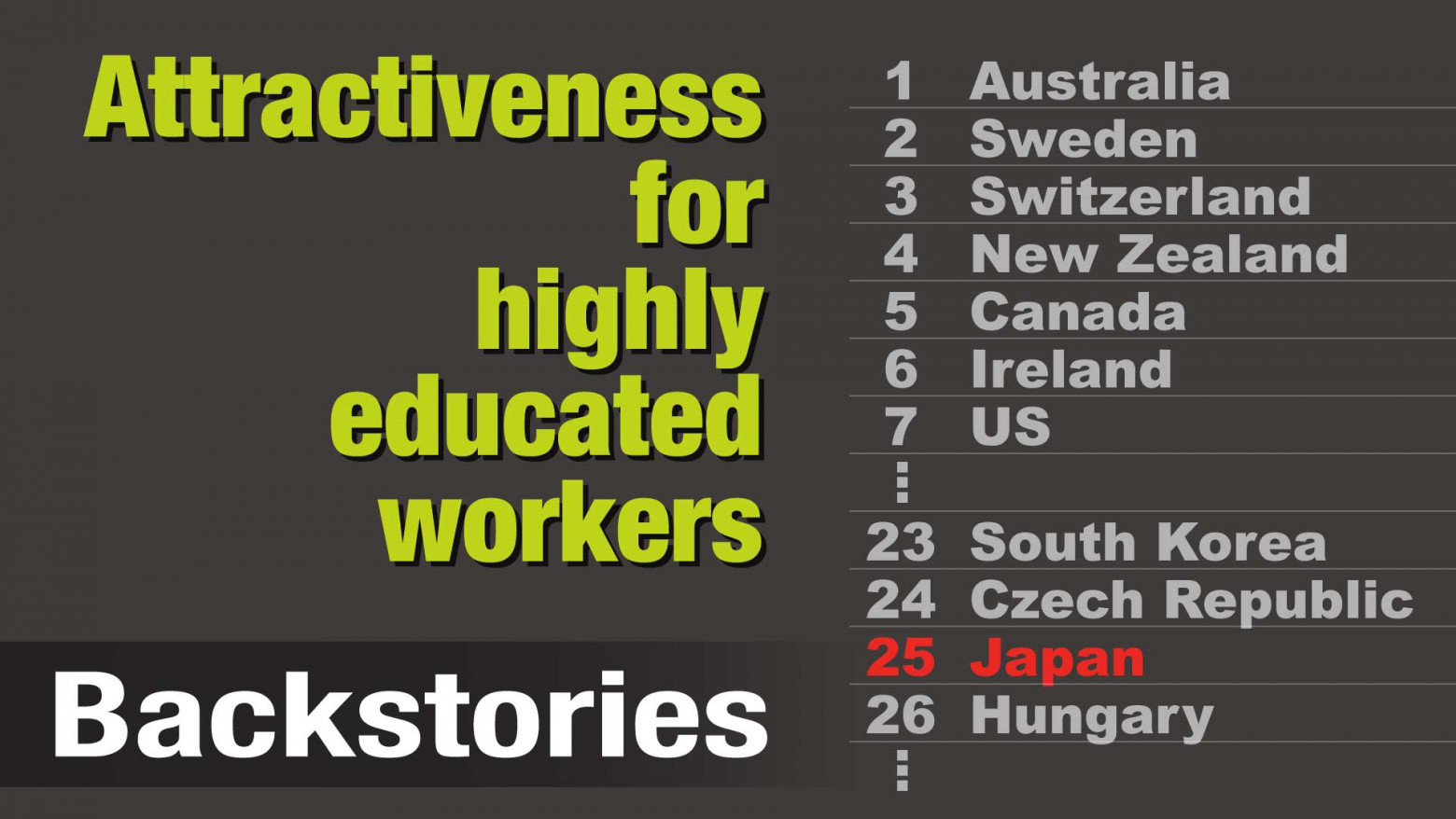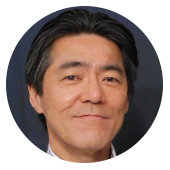The OECD report, Indicators of Talent Attractiveness, scores members in 7 categories it calls "dimensions of attractiveness." They include "quality of opportunities", "income and tax", and "family environment".
A country scores low in the "quality of opportunities" category if the unemployment rate of highly skilled foreign workers is high, or if the visa process takes too long.
"Family environment" considers how easily a spouse can enter the country and work, and children can get citizenship. Children's education and public support for families also affect the grade.
An examination of these dimensions shows what's missing in Japan. It ranks bottom for "quality of opportunities", scoring 26 percent compared to 90 percent for top-ranked Hungary. In "family environment" it ranks third from bottom, beating only Latvia and Turkey.
Other studies have already shown that Japanese employees are forced to work long hours, and salaries and promotions are often based on seniority rather than performance. That is likely to be one reason highly educated workers choose to go elsewhere.
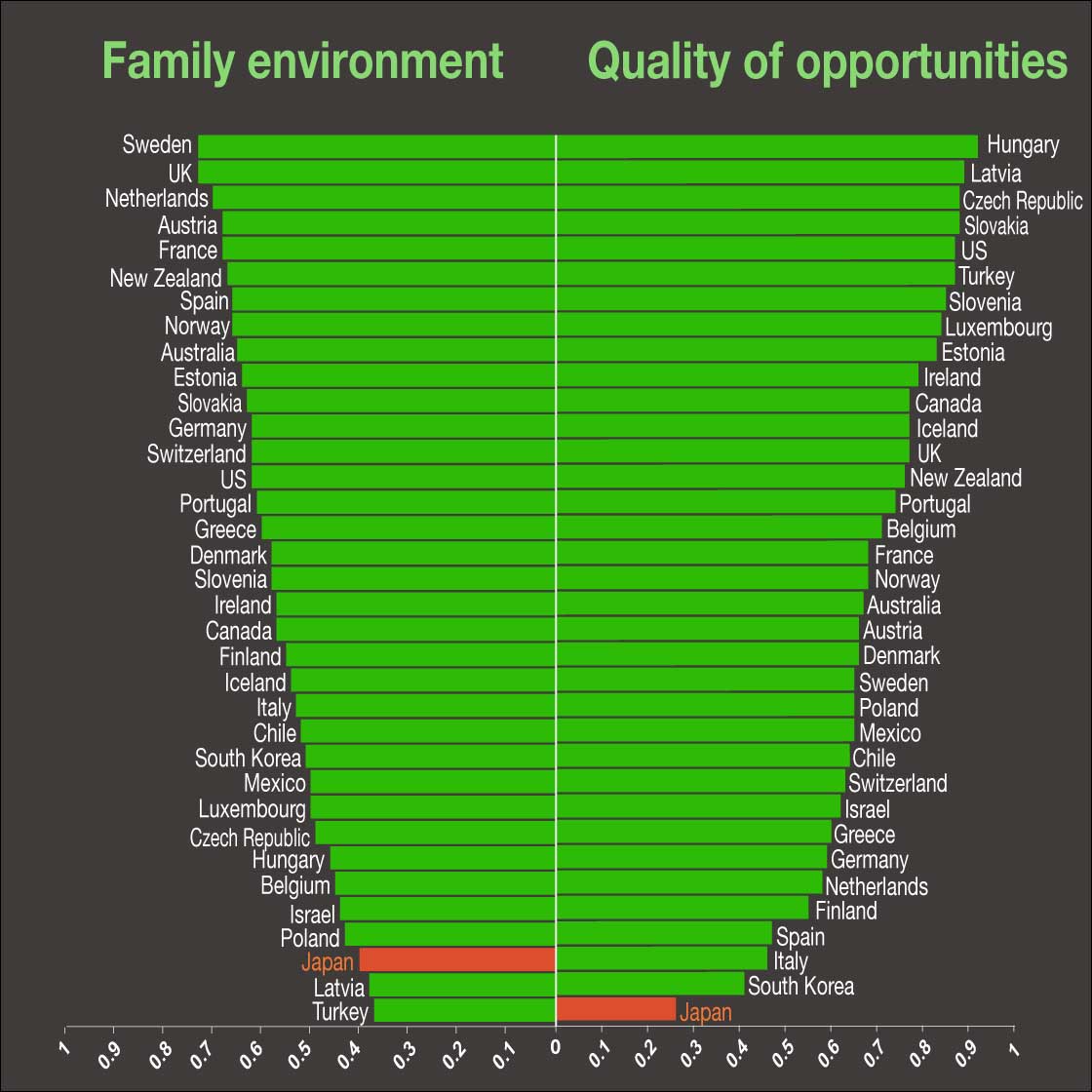
On the upside, Japan scores well in the "income and tax" dimension, ranking sixth among OECD countries. It places third in the "skills environment", with high scores for Internet accessibility, English-language proficiency and public spending on research and development.
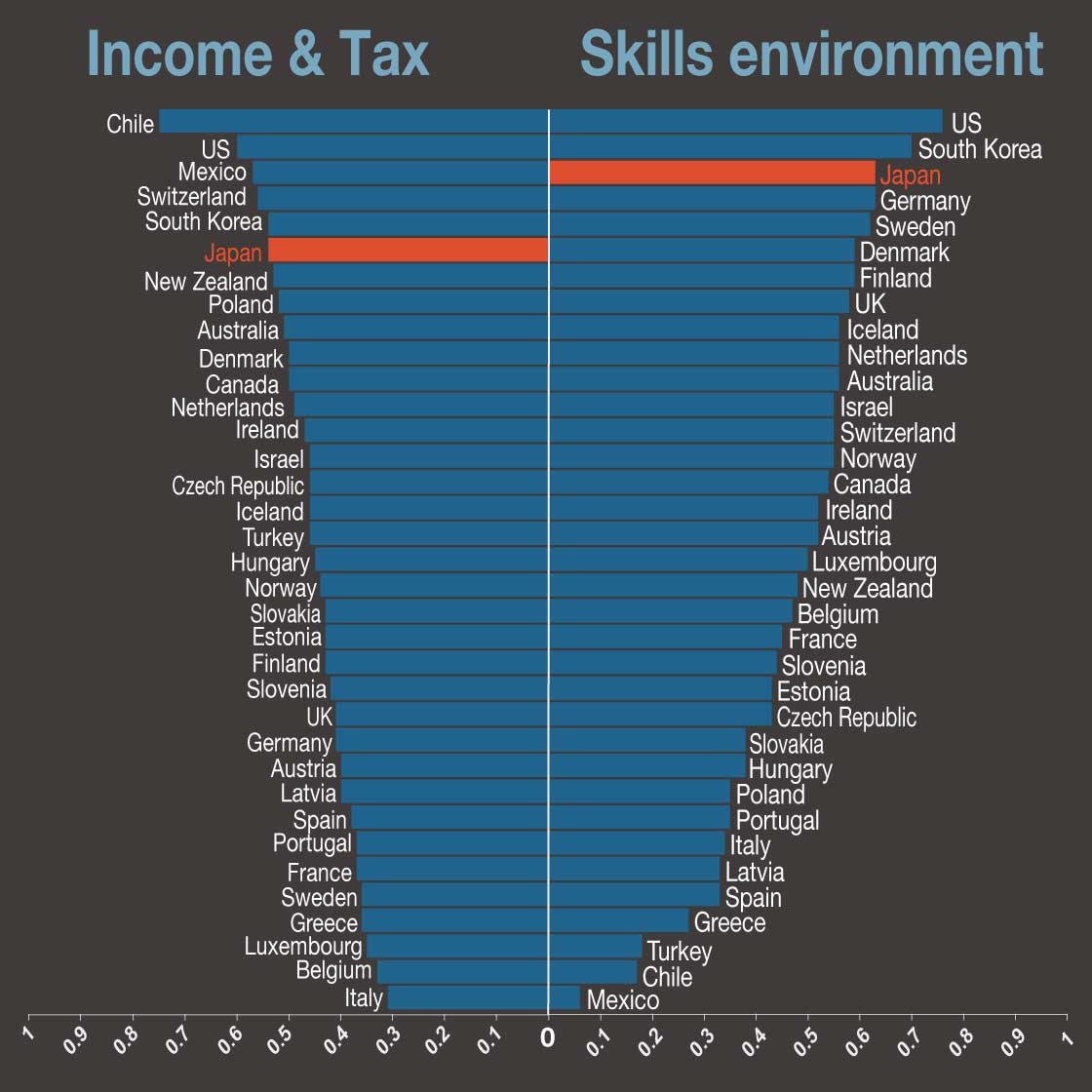
People from overseas currently working in Japan say the visa processing and opportunities are the main issues. One young woman from Germany says finding a job took her far too long, and Japanese companies should provide better chances for talented young people. A man from Pakistan with a PhD said he had no problem finding a job, but he worries about access to daycare and schools if he and his wife decide to have children.
Japan has become more active in recruiting highly-skilled workers from overseas to support economic expansion and technological innovation. About 15,000 overseas professionals were working in the country at the end of last year. The government aims to raise that to 20,000 by 2020.
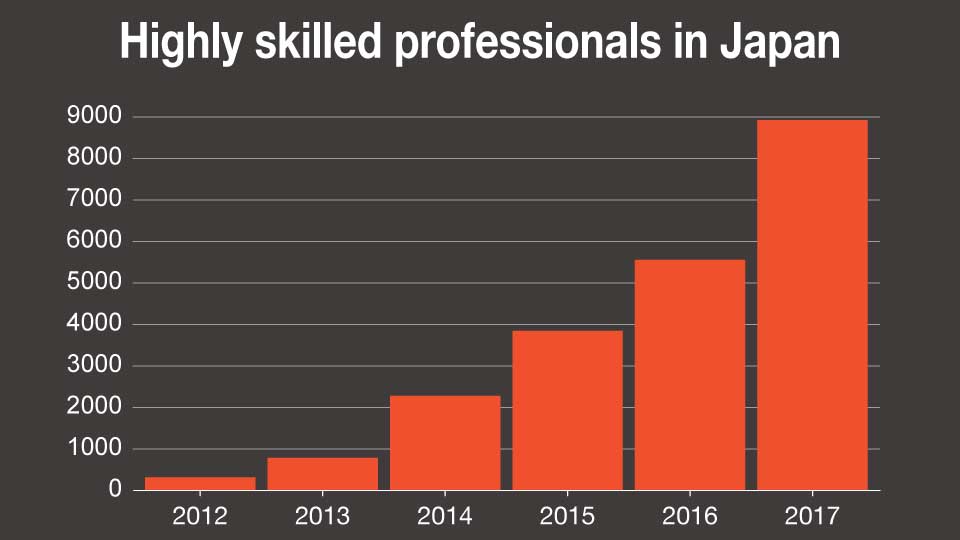
The country is buckling under the weight of an aging population, declining birthrate and shrinking domestic markets. It has to tap into the global talent pool to keep its competitive edge. A closer study of its attractiveness rankings would be a good place to get the ball rolling.
